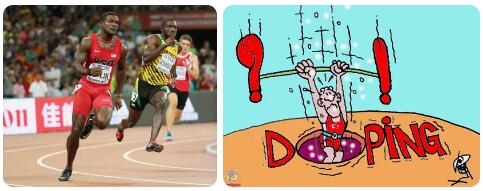
Doping is called the act and the result of doping: supplying certain substances with the aim of artificially enhancing organic functioning, putting health at risk. Doping is a prohibited practice in the field of sport. According to abbreviationfinder, PLAD stands for Plasma Doping.
Also known as doping, doping involves the use of substances that generate an exceptional performance of the organism, although with possible collateral effects harmful to health. Due to this danger and because it prevents normal competition and distorts the sports spirit, doping is sanctioned in professional sports.
Each discipline has a code specifying which substances and methods are prohibited. Through anti- doping control, the authorities analyze the urine of athletes in search of illicit drugs: if it is found that an athlete incurred in doping, he is sanctioned.
Steroids are among the most used substances in doping as they allow to increase strength and muscle mass. Narcotics, on the other hand, reduce pain and offer a calming effect. Stimulants, on the other hand, make the user more active and not feel fatigued.
The consumption of diuretics is also considered doping. This is mainly because they help remove other banned substances and thus protect the offender in drug tests.
One of the biggest doping scandals in sport involved the American cyclist Lance Armstrong. After various accusations and investigations, Armstrong was forced to admit that he systematically used testosterone and erythropoietin (EPO) and underwent blood transfusions to improve his performance. Given this situation, he was stripped of the seven trophies he had won in the Tour de France and the bronze medal he won at the 2000 Olympics. As if this were not enough, he was suspended for life.
Armstrong’s story is one of many that can be used as an example to learn several important life lessons. On the one hand, we must respect the rules of tournaments and competitions, even if we do not like them, since statistically most of our opponents will, and it is unfair for them to apply illegal techniques to run with an advantage.
But the most important thing is not the fact that resorting to doping is synonymous with cheating in this context, but rather the lack of self-confidence it represents. Although we must understand that professional athletes are forced to endure stages of great pressure, since the fate of an entire team may depend on their performance and their successes, it is very sad to think that someone does not trust their knowledge and their preparation to the point of believing that you need a drug to obtain victory.
Let’s see below the ten infractions contemplated in article 2 of the World Anti- Doping Code:
* the presence of substances considered prohibited, or their markers or metabolites, in the urine sample;
* use or attempt to use one of these substances or a method outside the rules during the practice of sport;
* refusing to deliver the sample;
* failure to show up on the date set for the test;
* tampering or attempting to tamper with any phase of doping control;
* have a prohibited substance in your possession;
* traffic or attempt to traffic any prohibited substance or method;
* administering or attempting to administer a prohibited product to a third party in or out of a competition;
* be an accomplice to any of the offenses on this list, both assisting an athlete and inciting him to commit them;
* associate with someone who has been convicted or sanctioned for resorting to doping.